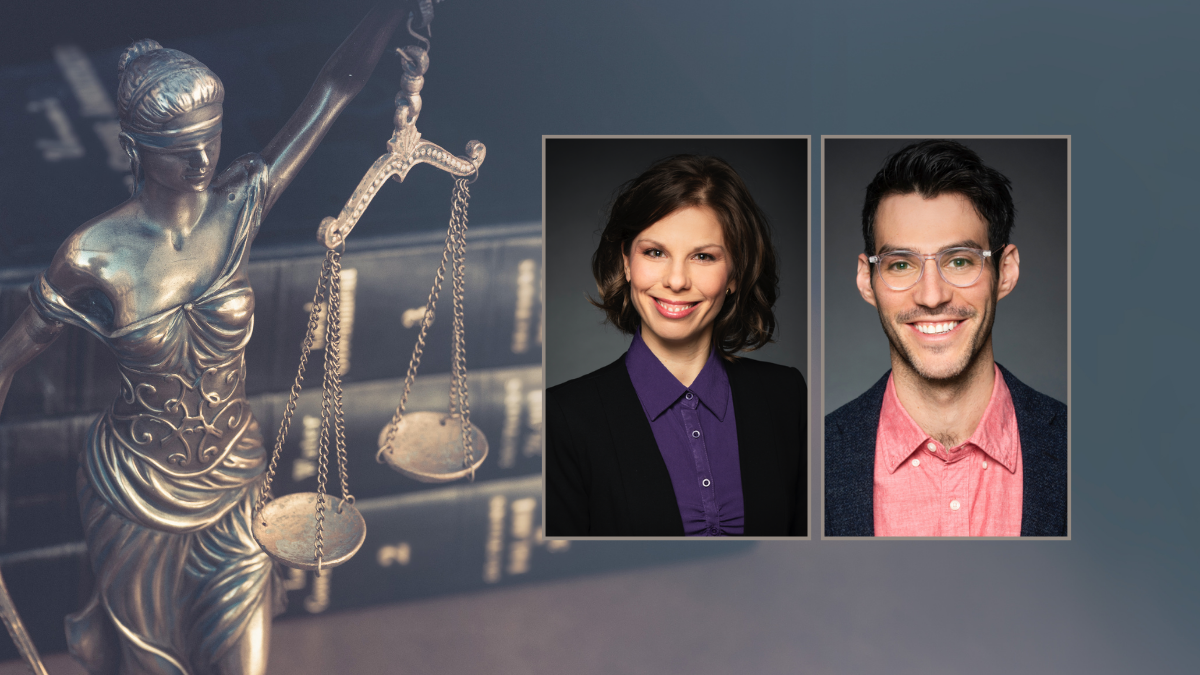But law is not immune to imperfections. Two professors in the Civil Law Section have been recognized for research articles exploring how our legal system inadvertently creates and sustains imperfections.
Professor Terry Skolnik and Professor Marie-France Fortin each authored articles in 2022 that exposed, through different approaches, the sometimes unsettling ways that law transforms and perpetuates imperfections. Professor Skolnik has now been named as the winner of the Fondation du Barreau du Quebec’s 2023 Concours juridique in the “Legal Article” category, while Professor Fortin has received an honourable mention as the runner-up in the same category.
Professor Skolnik’s article, entitled “Rééquilibrer le rôle de la Cour suprême du Canada en procédure criminelle” (Rebalancing the role of the Supreme Court of Canada in criminal procedure), looks at how the Supreme Court, over the last two decades, has expanded police powers to fill legislative gaps. The Court has authorized, for example, random vehicle stops and preventive searches. Professor Skolnik writes about how this approach raises grave concerns about the separation of powers and the possibility of these police powers leading to increased racial profiling and discrimination. He also notes that while police powers have been expanded, there has been no corresponding expansion of civil remedies related to police misconduct. The article explores how this doctrine has shifted the Court's role away from protecting fundamental rights, and instead sees it authorizing powers that undermine these rights. Professor Skolnik proposes a redefinition of the Court's role within criminal procedure to better safeguard the separation of powers, uphold the rule of law, and protect individuals' rights. His article is a detailed and daring defense of fundamental rights and the rule of law in the face of disturbing trends that offer quick fixes, but that overlook broader problems.
Professor Fortin’s article, entitled “L’État québécois et la Couronne canadienne : conception de la puissance publique à la lumière du droit de la responsabilité de la Couronne” (The State and the Crown in Quebec and Canada: Conceiving of Public Power in light of Crown Liability), traces a fascinating history of an antiquated common law tradition that considered the king to be immune from prosecution, often stated as “The King can do no wrong”. While government officials working under the king were, historically, fully liable for their actions, confusion crept in around the loosely defined notion of the “Crown”, or the government itself. Was the “Crown” a collection of civil servants, or was it representative, or even synonymous, with the unimpeachable monarch? Professor Fortin explores the history of the king’s personal immunity being stretched to cover the government itself, and how such developments have been reproduced in Canadian jurisprudence. She then contrasts this progression with the distinct nature of Quebec law. In Quebec, the State can be seen as being directly liable, and Professor Fortin cites several recent judicial decisions that demonstrate the divergence between federal and Quebec-specific conceptions of State liability. The result is a detailed and highly engrossing history of how our laws evolve, how imperfections echo across time, and how the foundations of our legal systems are often fragile and in need of reshaping.
The FBQ has held its legal writing competition on an annual basis since 1984, rewarding legal writers who have distinguished themselves through their contributions to legal discourse. Just last year, Professor Audrey Ferron Parayre received an honourable mention in the “New Author” category, while Professor Ghislain Otis earned an honourable mention in the “Legal Article” category.
Congratulations to Professor Skolnik and Professor Fortin on their exceptional achievements!
